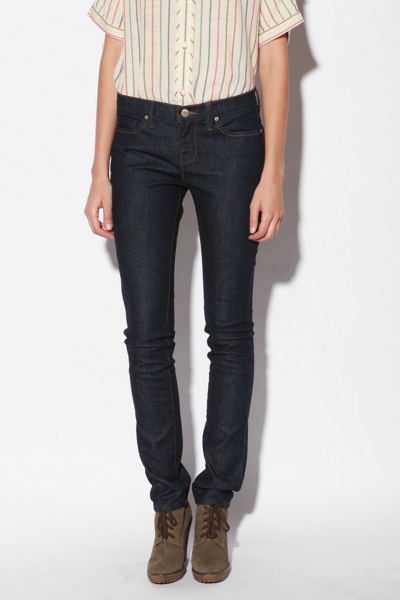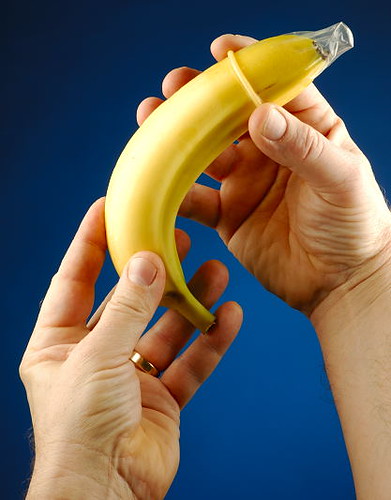
Check out this Businessweek article: How Facebook Sells You.
No worries, this is not one of those paranoid Facebook articles that's preaching abstinence from the world's largest social networks. So you can still keep your virtual friends, just.. beware of them.
FB is a tool, still very much in development and changing, and one that can be used in many great ways. Take, for example, me & you, together at last. [giggle]. Likewise, however, it can also be abused— or used in ways NOT intended— in equally as many ways, if not more.
The point is to UNDERSTAND how and why FB is used [not just quit it altogether].
The article is great for illustrating how hungry businesses are to wet your appetite and swallow your cash, and, with that in mind, how much media can affect our psyche, behaviors and, ultimately.. ugh, I know, but health.
When it comes to nutrition and health education, businesses really do reign supreme. Is it really any surprise, considering the amount of money that goes into advertising and healthcare?
Some food for thought and some highlighted snippets, in case you don't care to read the whole thing:
Question: How many times have you done something because someone you care about did it?
"The whole premise of the site is that everything is more valuable when you have context about what your friends are doing," says Facebook co-founder and Chief Executive Officer Mark Zuckerberg, who started accepting ads on Facebook as a Harvard sophomore in 2004 in an attempt to cover server costs. "That's true for ads as well. An advertiser can produce the best creative ad in the world, but knowing your friends really love drinking Coke is the best endorsement for Coke you can possibly get."
Question: Are there really that many people engaged in advertising and branding?
"A year ago, Facebook was an afterthought," says Carol Kruse, vice-president, global interactive marketing, at Coca-Cola (KO), which has more than 12 million Facebook fans. "As we go into 2011, it's fully integrated into our marketing plans, with a reliance and a focus on it."
Question: How are businesses using social media?
Facebook calls its ads "engagement ads," because they ask users to take action: play a video, vote in a poll, RSVP to an event, or just comment or click a button to indicate that they "like" it. The "like" button, which Facebook has gradually attached to just about every piece of content on its site and others across the Web, is intended to convey a general recommendation to a member's friends. So while a great majority of users ignore the great majority of ads on Facebook, the numbers change when, say, an ad for a local restaurant is footnoted by friends' names: ("Jordan, Jen, and 3 other friends like this").
That social endorsement is a tiny mnemonic designed to make the ad catchier, and it works. Nielsen, which started measuring the efficacy of Facebook ads a year ago, says that if users see their friend "likes" an ad or has commented on it, they are up to 30 percent more apt to recall the ad's message.
If enough of your friends like or comment on the ad, the ad can escape its right-side quarantine and jump into your main news feed, along with the names of your friends and all the conversation around the ad. The advertiser pays nothing for this migration. In the industry, it's called "earned media." (Think of a teenager wearing a Nike T-shirt or Ellen DeGeneres enthusiastically talking about a product.)
Question: What are the consequences?
Facebook's promise to advertisers isn't to get consumers to buy their products—or really even to get them to click through to their website. Instead, it wants to subtly park the advertiser's brand in the user's consciousness and provoke a purchase down the line. More immediately, it also aims to get you to "like" the brand yourself, which then serves as a sort of all-purpose opt-in, allowing the advertiser to insert future messages into your feed.
Think about it. Amongst the advertising fiends is Big Food trying to get you to eat as much of their manufactured crap as often as possible. Diet [& activity for that matter] is about ongoing lifestyle. So essentially, it's their job to take yours over, and, with 2/3 of our population suffering from overweight/obesity, it looks like they're doing a hell of a job. Literally.
What do you think? Do you buy it? ..oops. Not buy buy, but you know.. agree with, or Like, the argument? [grin].
Happy Healthy Juicy Powers of Social Media! For Better or For Worse.
Educators, Pay Attention!
 Case and point: Snooki on the cover of OK! mag, plastered with the words: 'My Battle with Anorexia'.
Case and point: Snooki on the cover of OK! mag, plastered with the words: 'My Battle with Anorexia'.




 1)
1)  3)
3)  One such badge is called the Gym Rat, which you can earn if you check in to venue tagged 'gym' 10 times in 30 days. At one point in his presentation, Selvadurai shares a user's comment, which said his desire for this badge got him to go to the gym and is healthier because of it. Yoga studios, parks, farmers' markets, health food stores, restaurants with healthy fare, are other examples of how this app can and has been influential within communities, by themselves no less.
One such badge is called the Gym Rat, which you can earn if you check in to venue tagged 'gym' 10 times in 30 days. At one point in his presentation, Selvadurai shares a user's comment, which said his desire for this badge got him to go to the gym and is healthier because of it. Yoga studios, parks, farmers' markets, health food stores, restaurants with healthy fare, are other examples of how this app can and has been influential within communities, by themselves no less. When we think ‘physical education’, we think: manly female gym teacher, locker rooms, goofing off, class without tests..
When we think ‘physical education’, we think: manly female gym teacher, locker rooms, goofing off, class without tests.. Girls, for example, learn that they aren’t naturally beautiful and so, fueling a multi-billion $$ industry, they wear makeup, day.in.&.day.out. Kids, for example, learn what’s cool and then themselves, drink, smoke, use, wear, listen, watch, act whatever it is that they learned. What we learn affects our behavior, for better or for worse.
Girls, for example, learn that they aren’t naturally beautiful and so, fueling a multi-billion $$ industry, they wear makeup, day.in.&.day.out. Kids, for example, learn what’s cool and then themselves, drink, smoke, use, wear, listen, watch, act whatever it is that they learned. What we learn affects our behavior, for better or for worse. I mean, it’s not my job to force feed people [here doesn't come the choo choo of broccoli..] but just be convincing enough that they’ll do it themselves, on their own. *Like*, you could be the best parent in the world but that doesn’t necessarily guarantee your kid won’t turn out to be a criminal. Over the years I guess I’ve come to accept it as true, though: my actions/purpose as an educator is geared toward [un-forceful, yes, but nonetheless] behavior change [for the better].
I mean, it’s not my job to force feed people [here doesn't come the choo choo of broccoli..] but just be convincing enough that they’ll do it themselves, on their own. *Like*, you could be the best parent in the world but that doesn’t necessarily guarantee your kid won’t turn out to be a criminal. Over the years I guess I’ve come to accept it as true, though: my actions/purpose as an educator is geared toward [un-forceful, yes, but nonetheless] behavior change [for the better]. Marketers—think ads/commercials, product placements etc.
Marketers—think ads/commercials, product placements etc.